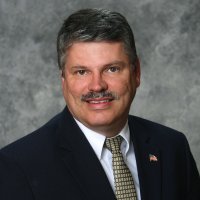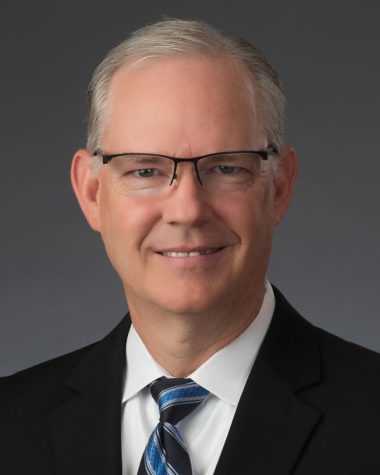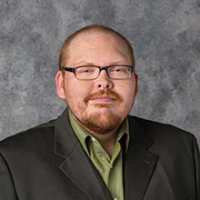SDSU hopes to introduce elementary and special education majors
April 25, 2023



South Dakota State University hopes to be part of the solution to add teachers to the declining teacher workforce by adding two new majors: elementary education and special education.
The potential addition of the two new majors has been the topic of conversation for over a year, Maher said.
This is the first dedicated attempt to seek the addition of these two new majors at SDSU.
“It’s been a long time in the planning process that SDSU really did their due diligence, and I know they talked to industry partners and also looked at workforce development in this area,” Brian Maher, executive director for the Board of Regents, said.
The elementary education major would prepare graduates to teach students in the elementary grades, kindergarten through eighth grade.
The special education major would allow students to develop skills and competencies required of effective K-12 special education teachers.
SDSU currently offers an early childhood education bachelor’s degree – birth to 8 specialization. The university also offers a cooperative elementary education program with Dakota State University – early childhood education bachelor’s degree. By enrolling in the cooperative program, you are required to complete an additional 24 credit hours of elementary education and field placements managed by DSU.
“Two things that excite me [about the potential new majors] is the faster path to graduation for SDSU students and the greater affordability for students,” Maher said.
The two new majors would look to provide SDSU students the opportunity of being able to obtain degrees solely from South Dakota’s land-grant university.
“It is exciting to hear that SDSU is preparing to add elementary education and special education majors. This will certainly complement and expand SDSU’s already outstanding teaching degree options,” Jacki (Hillesheim) Kyllonen, 2000 SDSU alumni, said. “As a special education teacher in Minnesota, I can assure you the teaching shortages are real. We look forward to welcoming new SDSU education graduates to our teacher workforce.”
Of the six regental institutions in South Dakota, SDSU and South Dakota School of Mines and Technology are the only two universities that do not offer special education or elementary education.
“There are eleven educator preparation programs (EPP) in South Dakota that train teachers and contribute to building the critically needed workforce of educators,” according to the Intent to Plan for a New Program document that was submitted to the South Dakota Board of Regents.
SDSU is the only institution of 11 teacher training programs that does not offer a bachelor’s degree in elementary education or special education, according to the Intent to Plan document.
The Intent to Plan document says the following South Dakota schools have traditional elementary education programs: Augustana University, Black Hills State University, Dakota State University, Dakota Wesleyan University, Mount Marty College, Northern State University, Oglala Lakota College, Sinte Gleska University, University of Sioux Falls and the University of South Dakota, Maher said.
“Our hope isn’t that we take from our other institutions. Our hope is that we would increase the number of graduates in that particular area, and then we would be able to serve the schools in the state of South Dakota,” Maher said.
Because of SDSU’s location, officials are hoping to potentially draw more Minnesota students with these new programs.
“Once we get them in our state, there is about a 30% chance that they will stay in our state,” Maher said. “Our hope is that we increase the size of the pie, not just move the pieces around within the pie.”
The formal process starts with the intent to plan document, which was presented and approved at the December Board of Regents meeting.
“That’s where it picks up steam, so that everybody in the system knows that an institution is looking at a new major,” Maher said.
Doug Wermedal, vice president of Student Affairs, said, “Efforts like this and programs like this don’t just fall out of the sky.”
SDSU recognizes the industry need for more teachers to combat the declining teacher workforce.
“We have heard from the school administrators of South Dakota and the Associated School Boards of South Dakota,” Maher said. “They are saying we need more teachers, please let SDSU have these programs.”
There are simply not enough teachers in South Dakota or the region, but it is a nationwide issue.
“If you talk to the superintendents in our state, they will tell you: We have a need. We are not supplying enough special education majors. Get us more,” Maher said.
Maher said that while these two majors are not officially approved, there is a positive momentum right now. He also said that the high need for more teachers works in favor of SDSU.
It is important to market education as a pathway to professionalism for students. These two new majors could open pipelines for more people to enter the teaching profession.
“I think fall 2025 is when you could see those majors offered on campus,” Maher said.
Patrick Hales, assistant director of K-12 teacher education at SDSU, said there was a lot of faculty and student interest.
“I think we have had enough time and the right people in place in the last few years to work on pushing it forward,” Hales said.
A task force of eight people was formed last fall and put together the two intent to plan documents. There are several levels of approval needed when looking into adding a new major, Hales said.
The task force will seek approval from SDSU, the Board of Regents and the South Dakota Department of Education.
“Every teacher education program at SDSU is accredited,” Hales said. “All the programs that we currently have are either directly accredited or recognized by CAEP (Council for the Accreditation of Educator Preparation).”
The new programs would not be immediately accredited but will be up for accreditation in 2026, according to Hales.
He added that putting together the curriculum is one of the most time-consuming processes, as well as creating syllabi for all the new courses that are not offered yet.
If both majors are approved, the next step would be to complete a faculty search.
“It’s hard to say how many new faculty would need to be hired on,” Hales said. “If approved, it would depend on funding and workloads of current faculty.”
The teaching profession is still attractive to many people and it’s still something that many high school students see themselves doing, but it’s not nearly enough.
“The work that we do to attract more people into the profession will be really important over the next several years,” Wermedal said.
One of the answers could be teacher compensation. There must be a South Dakota answer to that, according to Wermedal.
“There are few jobs that are as rewarding as teaching when you find a passion for it,” Hales said. “You are working with humans that are at an important stage in their life that need support.”
“We need more people to be the next generation of favorite teachers,” Wermedal said.
The demand for all teachers is growing but especially elementary and special education teachers.
“On July 29, 2022, the Associated School Boards of South Dakota reported 309 teacher openings remained just weeks before the beginning of 2022-23 school year. Elementary education positions represented 64 of the classroom vacancies in South Dakota and Special Education positions represented 60 of the educator vacancies in South Dakota,” according to the Intent to Plan documents.
The Bureau of Labor Statistics projects 4% job growth for special education and elementary teachers from 2021-2031. According to the US Department of Labor, about 37,600 openings for special education teachers and 120,300 openings for elementary education teachers are projected each year.
The South Dakota Education Preparation Providers collectively produced 97 special education teachers and 307 elementary education teachers in 2021.
The United States Department of Education and the South Dakota Department of Education includes special education and elementary education teachers as areas of teacher shortage for 2022-2023.
When asked what the impact the two potential majors could have on SDSU, Wermedal said, “I don’t know how it could do anything other than enrich opportunities and enrich SDSU.”





















